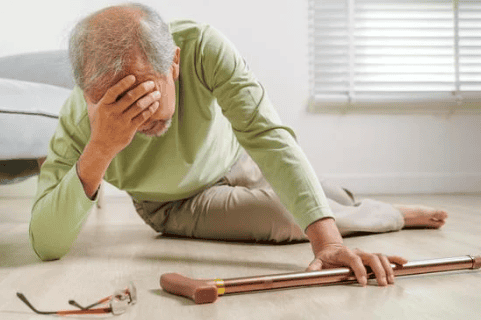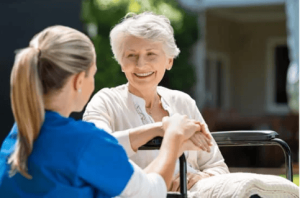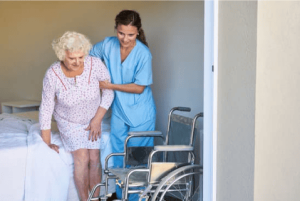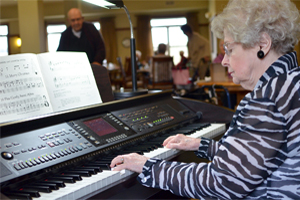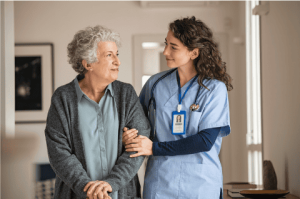The National Council on aging says that “Falls are the leading cause of fatal and nonfatal injuries for older Americans. Falls threaten senior’s safety and independence, and generate enormous economic and personal costs. However, falling is not an inevitable result of aging. Through practical lifestyle adjustments, evidence-based falls prevention programs and clinical-community partnerships, the number of falls among seniors can be substantially reduced.” The CDC states that they have implemented programs to educate seniors about preventing falls.
As people age, their bodies become weaker and their bones become brittle. As a result, a fall can be disastrous, even fatal – if the senior is not by a phone and is not found – especially if they have hit their head or broken their hip or other bones. Falls bestow a lack of confidence and may affect the senior’s ability to continue exercising. Also, they could become less mobile, which will lead to sitting more often which increases the risk of another fall. Merck Manual says that “20% of falls cause a serious injury such as fracture (including a broken hip) or head injury. Older adults are more likely to break bones in falls because many older adults have porous, fragile bones (a condition called osteoporosis).”
Senior falls contribute to a public health challenge as these statistics are overwhelming: The Center for Disease control notes that 1 in 4 seniors fall every year. Additionally, falls are the top cause of Emergency Room visits – resulting in 3 million each year – and 1 out of 3 injuries in the United States occur because of a fall.
Even if you are not injured, make sure to tell your doctor that you have fallen. Your Physician needs to be in the know in order to make educated decisions about your health and well-being. If the unknown injury did indeed cause some internal damage, that could exacerbate into physical, cognitive or emotional symptoms over time.
Prevention Strategies
Falls can be prevented by keeping your home and surroundings safe. Removing throw rugs or securing them to the floor, installing grab bars and having regular vision and hearing check ups will decrease the risk of sensory deterioration. Regular exercise can improve balance and decrease your risk of a fall. Practicing balancing exercises, such as yoga will improve their flexibility, strength and reaction time. Also maintaining proper nutrition and hydration is essential in decreasing the risk of a fall in senior years.
The staff at Grand Haven Retirement Community make certain to use safeguards to protect their residents from falling.

